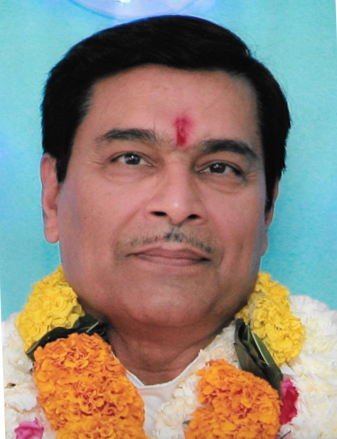From a satsang with Pundit Balram Persad, Spiritual Leader, SWAHA Om Shakti Mandali
All religious festivals bring the universal message of light, enlightenment and empowerment that transforms ignorance to self-illumination and spiritual evolution. The various observances on the Hindu religious calendar are a constant reminder of the process of spiritual evolution which we need to undergo.
The month of Kaartik (October-November) in the Hindu calendar is considered to be one of the most auspicious periods of the year for spiritual activities that lead to the goal of enlightenment. Commencing just after the Ashvin full moon, the month of Kaartik this year will be observed from October 18 until the Kartik full moon on November 15, 2024 Quite a number of auspicious occasions are observed during this month.
As such, one should engage in a month of intense devotion and increased time spent in communion with the Divine. The special occasions offer an abundance of opportunities to increase focus on the spiritual and release oneself from the bondage of negative qualities such as anger, greed, envy, lust and hate.
The entire month of Kaartik is dedicated to tulsi worship. The plant, which holds great significance to Hindus, is worshipped daily during this month. Apart from tulsi worship, other auspicious occasions that are observed in the month of Kaartik are:
- Karvaa Chowth
- Divali
- Govardhan Puja
- Kaartik Snaan
The tulsi plant holds a place of significance in Hinduism. Our ancestors brought the plant to our shores and Hindus usually keep at least one plant in their homes, where it is treasured and worshipped. Tulsi Maa is representative of sattvic prakriti or piety, truth, goodness and righteousness and her devotee develops such qualities. Furthermore, where Tulsi Maa resides, auspicious vibrations, peace and prosperity also dwell.
Tulsi worship must also be understood within the context of Sanaatan Dharma. There are various paths, principles and practices that one can follow, based upon one’s preference, constitution and temperament, to experience the joy, peace and bliss of the Lord. Among the many paths is bhakti yoga, the path of devotion and unconditional love for the Divine. Such devotional worship can take many forms: the performance of rituals such as puja, offering flowers and prasad, lighting deeyas, devotional singing (kirtan), mantra jap (recitation of the Holy Names of the Lord), upaasanaa (all forms of worship) and meditation. Other pathways include karma yoga (the path of action), gyaan yoga (the path of wisdom), mantra yoga (the path of mantra recitation) as well as ayurvedic yoga (the path of healing), which includes tulsi puja. Yoga means ‘union’ or ‘striving for self realisation’ but in order to reach that state, we must first purify our mind and body. Tulsi worship is one such means for achieving this goal.
During the auspicious month of Kaartik, daily tulsi puja is recommended by the Devi Bhagwat Puraan. The puja may be performed at dawn, midday and dusk: Clean around your tulsi plant or keep it in a clean environment, if potted; offer sprinkled water on the plant five times; apply chandan (sandalwood paste); offer dhoop (incense and essence) and pushpam (flowers), light a ghee deeya and perform mantra jap reciting the dasakshar mantra:
Om Shreem Hreem Kleem Aim Vrindavanyai Swaha.
Another mantra states that all holy places reside at the root of the tulsi; the Devtas reside on its branches; and the leaves represent the various yagyas (sacrificial worship). It is said that in worshipping the tulsi, we derive the same merits as visiting the holy places and performing yagyas. Among the many benefits of tulsi puja are: alleviating obstacles and challenges, the fulfilment of legitimate desires as well as the achievement of the ultimate goals of spiritual transformation and self realisation.
We should make full use of this auspicious month so that we may advance spiritually and contribute to the development of our heritage and our society.



